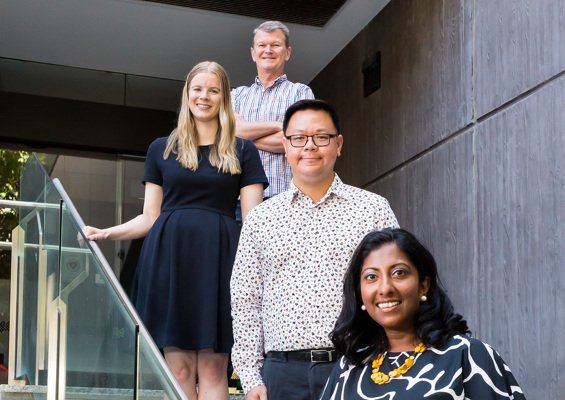After a time when the changing circumstances of COVID-19 has amplified many of these external factors for people, we asked four of our mental health researchers to share their reflections.

From top to bottom: Professor Andrew Lawrence, Katie Drummond, Dr Terence Pang, Associate Professor Jess Nithianantharajah
“Mental health is an incredibly complex field and although we were all in similar circumstances in Victoria, each person had a different individual experience. The terrible loss of life across the globe, financial instability and the simultaneous loss of many of our rituals and positive social interactions means that not only is COVID-19 an immediate public health crisis, it’s also a chronic stress event which could amplify any underlying issues to cause mental health problems going forwards. If you’re experiencing difficulties coping, I’d strongly recommend speaking with a doctor about strategies you can put in place to reduce the long-term impact of this stress,” Professor Andrew Lawrence, Division Head and a Group Leader of the mental health. research theme
“I use modeling to investigate how social isolation impacts on brain function and mental health. When restrictions on movement came into place across the world, it was clear that my pre-clinical research was applicable to the social isolation that many people suddenly faced. My research shows that social isolation can have an increased impact on vulnerable populations, including the young, elderly or people who have an existing mental illness. Importantly, my research has shown that exercise can be a protective factor against this,” Katie Drummond, PhD student.
“My research focuses on our genes, specifically how changes in the molecular machinery that controls connectivity and communication in our brains can create either vulnerability or resilience to mental illnesses. Understanding these biological factors is assisting us find improved treatment options that can be tailored for individuals with mental illnesses based on their specific symptoms. While we can’t change our genetics, there are things that we can control to manage and improve our mental wellbeing such as having the right amount of sleep, good nutrition, regular exercise, seeking out social support and medication if needed,” Associate Professor Jess Nithianantharajah, laboratory head.
“My research addresses how environmental factors cross generational boundaries and influence the lives of children and even the grandchildren, of those affected. This suggests that the true impact of the COVID-19 pandemic from a mental health perspective may not be understood for decades, but and will likely leave its mark on future generations. I’ll be continuing my work to understand the transgenerational impacts of stress and trauma and working to translate these findings into clinical tools so that we have effective risk mitigation strategies and a range of management options in case of future distressing events,” Dr Terence Pang, laboratory head.
A team of Florey researchers including Professor Andrew Lawrence, explored the impact of the Covid-19 pandemic on our mental health and that of our children and future generations in an online webinar for World Mental Health Month in late 2020. As the keynote speaker he emphasised that with one in four people living with a mental health illness, it is more vital now than ever that we invest in a deeper understanding of mental health and in developing treatments.
